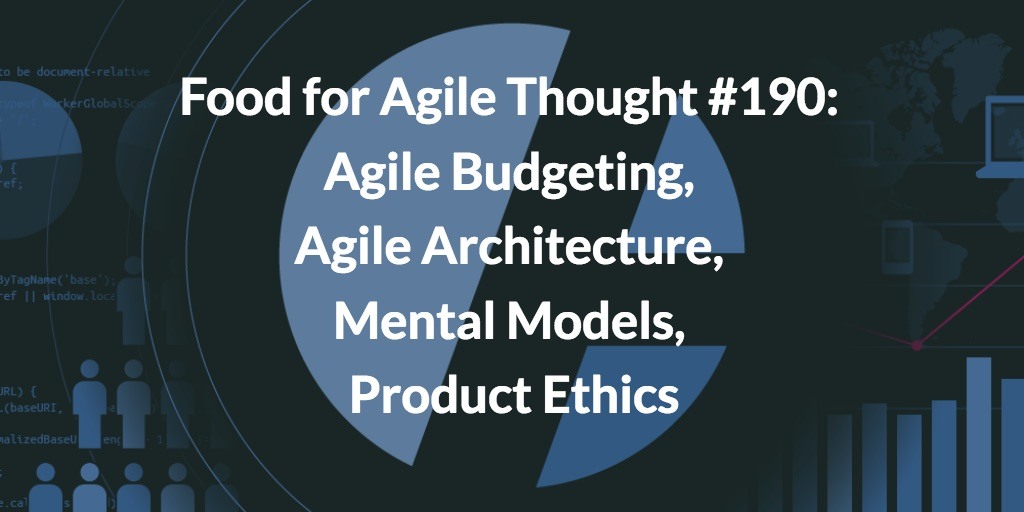Food for Agile Thought’s issue #190—shared with 21,794 peers—focuses on agile budgeting — or why the industrial model of handling money is preventing companies from becoming agile —; we learn to distinguish between emergent architecture and architecture by chance, and we come back to technical debt once more.
We also embrace the idea of not harming people and our societies with new products. We learn more about visualizing experiments, and we abandon the idea of misusing the Sprint Planning for creating the perfect plan—control is an illusion.
Lastly, we enjoy Sam Harris Shane Parrish reflecting on mental models, decision making, and the tricks your mind is playing with you.
Did you miss last week’s Food for Agile Thought’s issue #189?
🏆 The Essential Read
and : Mental Models
Sam Harris and Shane Parrish discuss some of the mental models that should guide our thinking and behavior.
Agile Budgeting & Scrum
: Agile Architecture
Michael Küsters outlines the significant difference between ‘emergent architecture’ and ‘architecture by chance.’
(via Forbes): Why Budgeting Cripples Agile And Innovation
Agile budgeting: Steve Denning analyses why the budget often constitutes a major stumbling block to creating a truly agile organization.
(via DZone): Technical Debt: The Good, the Bad, and the Reckless
Matthew O'Riordan reflects on how to avoid unnecessary technical debt and how to detect it when you are on the brink of acquiring it.
Product & Lean
: Product Ethics
Roman Pichler points at the importance that we take responsibility for the ramifications of our products and make ethically sound product decisions.
: Why Sprint Planning Meetings Won’t Deliver Perfect Plans
Mike Cohn reminds us of the emergent nature of the Sprint Backlog.
(via Optimizely Blog): 6 Tactics to Make your Digital Experimentation Program More Visible
Becca Bruggman advocates visualizing the entire lifecycle of experimentation.
📺 Join 1,350-plus Agile Peers on Youtube
Now available on the Age-of-Product Youtube channel:
✋ Do Not Miss Out and Learn about Agile Budgeting: Join the 5,250-plus Strong ‘Hands-on Agile’ Slack Community
I invite you to join the “Hands-on Agile” Slack Community and enjoy the benefits of a fast-growing, vibrant community of agile practitioners from around the world.
If you like to join all you have to do now is provide your credentials via this Google form, and I will sign you up. By the way, it’s free.






